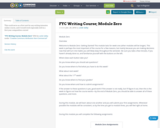
This could serve as a first unit for any writing intensive online course, and it would work especially well in a first year composition coursel
- Subject:
- English Language Arts
- Material Type:
- Homework/Assignment
- Date Added:
- 08/03/2015

This could serve as a first unit for any writing intensive online course, and it would work especially well in a first year composition coursel
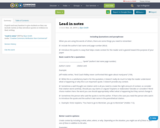
A quick and easy handout to give students so they can include variety as they introduce quotes or evidence in their writing.
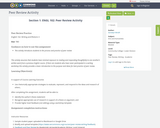
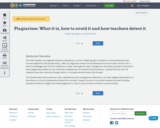
This little booklet, put together based on experience, can be a helpful guide to students to avoid potential traps around plagiarism and paraphrasing - after all, plagiarism needs not be deliberate and more often results from a lack of knowledge than from an intention to cheat. Although the topic of plagiarism should be standard material for every beginning student as one of the key competences all students should possess, I noticed that far from all students have ever seriously thought about, or actually learned about, the concept. The booklet does not provide you with a detailed account of plagiarism definitions, nor with lengthy elaborations on the ethical or moral considerations behind the concept. Instead, the aim is to provide students (as well as fellow teachers) hands-on insights into what plagiarism is, how it can be traced and how it can be avoided.
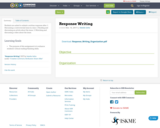
Students are asked to submit a written response after:
1. Discussing a controversial issue in class.
2. Reading and discussing an article about the issue.
3. Watching and discussing a video about the issue.
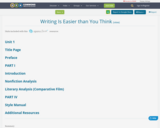
This is an in-process draft of an English composition textbook.
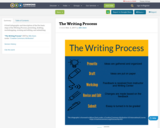
A brief infographic and description of the five basic steps of the Writing Process: prewriting, drafting, workshopping, revising and editing, and submitting.